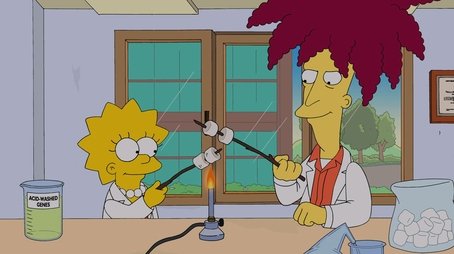
Sorry, we have not watched this yet.

During a research trip, Lisa learns that Sideshow Bob is the chief scientist at a big chemical engineering company; Marge tries to teach a teen church group about healthy sexual practices.
Sorry, we have not watched this yet.